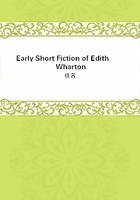
第8章
This curious narrative was not told in one sitting of the court, or received without impatience and incredulous comment. It was plain that the Judges were surprised by its puerility, and that it did not help the accused in the eyes of the public. It was an odd tale, certainly; but what did it prove? That Yves de Cornault disliked dogs, and that his wife, to gratify her own fancy, persistently ignored this dislike. As for pleading this trivial disagreement as an excuse for her relations--whatever their nature--with her supposed accomplice, the argument was so absurd that her own lawyer manifestly regretted having let her make use of it, and tried several times to cut short her story.
But she went on to the end, with a kind of hypnotized insistence, as though the scenes she evoked were so real to her that she had forgotten where she was and imagined herself to be re-living them.
At length the Judge who had previously shown a certain kindness to her said (leaning forward a little, one may suppose, from his row of dozing colleagues): "Then you would have us believe that you murdered your husband because he would not let you keep a pet dog?"
"I did not murder my husband."
"Who did, then? Herve de Lanrivain?"
"No."
"Who then? Can you tell us?"
"Yes, I can tell you. The dogs--" At that point she was carried out of the court in a swoon.
. . . . . . . .
It was evident that her lawyer tried to get her to abandon this line of defense. Possibly her explanation, whatever it was, had seemed convincing when she poured it out to him in the heat of their first private colloquy; but now that it was exposed to the cold daylight of judicial scrutiny, and the banter of the town, he was thoroughly ashamed of it, and would have sacrificed her without a scruple to save his professional reputation. But the obstinate Judge--who perhaps, after all, was more inquisitive than kindly--evidently wanted to hear the story out, and she was ordered, the next day, to continue her deposition.
She said that after the disappearance of the old watch-dog nothing particular happened for a month or two. Her husband was much as usual: she did not remember any special incident. But one evening a pedlar woman came to the castle and was selling trinkets to the maids. She had no heart for trinkets, but she stood looking on while the women made their choice. And then, she did not know how, but the pedlar coaxed her into buying for herself an odd pear-shaped pomander with a strong scent in it--she had once seen something of the kind on a gypsy woman. She had no desire for the pomander, and did not know why she had bought it. The pedlar said that whoever wore it had the power to read the future; but she did not really believe that, or care much either. However, she bought the thing and took it up to her room, where she sat turning it about in her hand. Then the strange scent attracted her and she began to wonder what kind of spice was in the box. She opened it and found a grey bean rolled in a strip of paper; and on the paper she saw a sign she knew, and a message from Herve de Lanrivain, saying that he was at home again and would be at the door in the court that night after the moon had set. . .
She burned the paper and then sat down to think. It was nightfall, and her husband was at home. . . She had no way of warning Lanrivain, and there was nothing to do but to wait. . .
At this point I fancy the drowsy courtroom beginning to wake up.
Even to the oldest hand on the bench there must have been a certain aesthetic relish in picturing the feelings of a woman on receiving such a message at night-fall from a man living twenty miles away, to whom she had no means of sending a warning. . .
She was not a clever woman, I imagine; and as the first result of her cogitation she appears to have made the mistake of being, that evening, too kind to her husband. She could not ply him with wine, according to the traditional expedient, for though he drank heavily at times he had a strong head; and when he drank beyond its strength it was because he chose to, and not because a woman coaxed him. Not his wife, at any rate--she was an old story by now. As I read the case, I fancy there was no feeling for her left in him but the hatred occasioned by his supposed dishonour.
At any rate, she tried to call up her old graces; but early in the evening he complained of pains and fever, and left the hall to go up to his room. His servant carried him a cup of hot wine, and brought back word that he was sleeping and not to be disturbed; and an hour later, when Anne lifted the tapestry and listened at his door, she heard his loud regular breathing. She thought it might be a feint, and stayed a long time barefooted in the cold passage, her ear to the crack; but the breathing went on too steadily and naturally to be other than that of a man in a sound sleep. She crept back to her room reassured, and stood in the window watching the moon set through the trees of the park.
The sky was misty and starless, and after the moon went down the night was pitch black. She knew the time had come, and stole along the passage, past her husband's door--where she stopped again to listen to his breathing--to the top of the stairs.